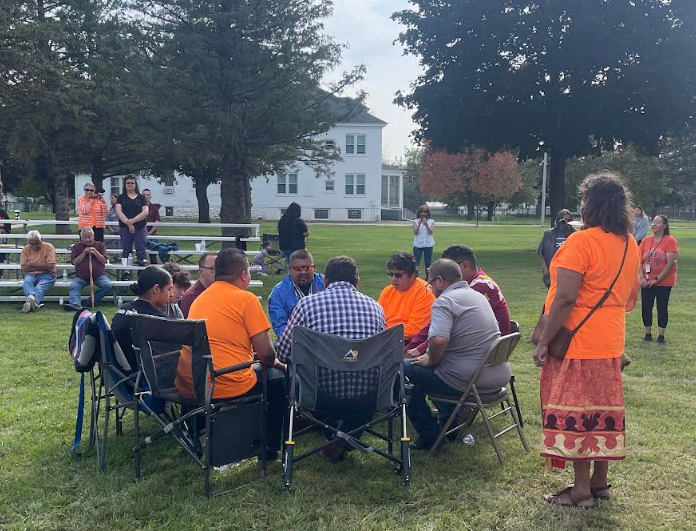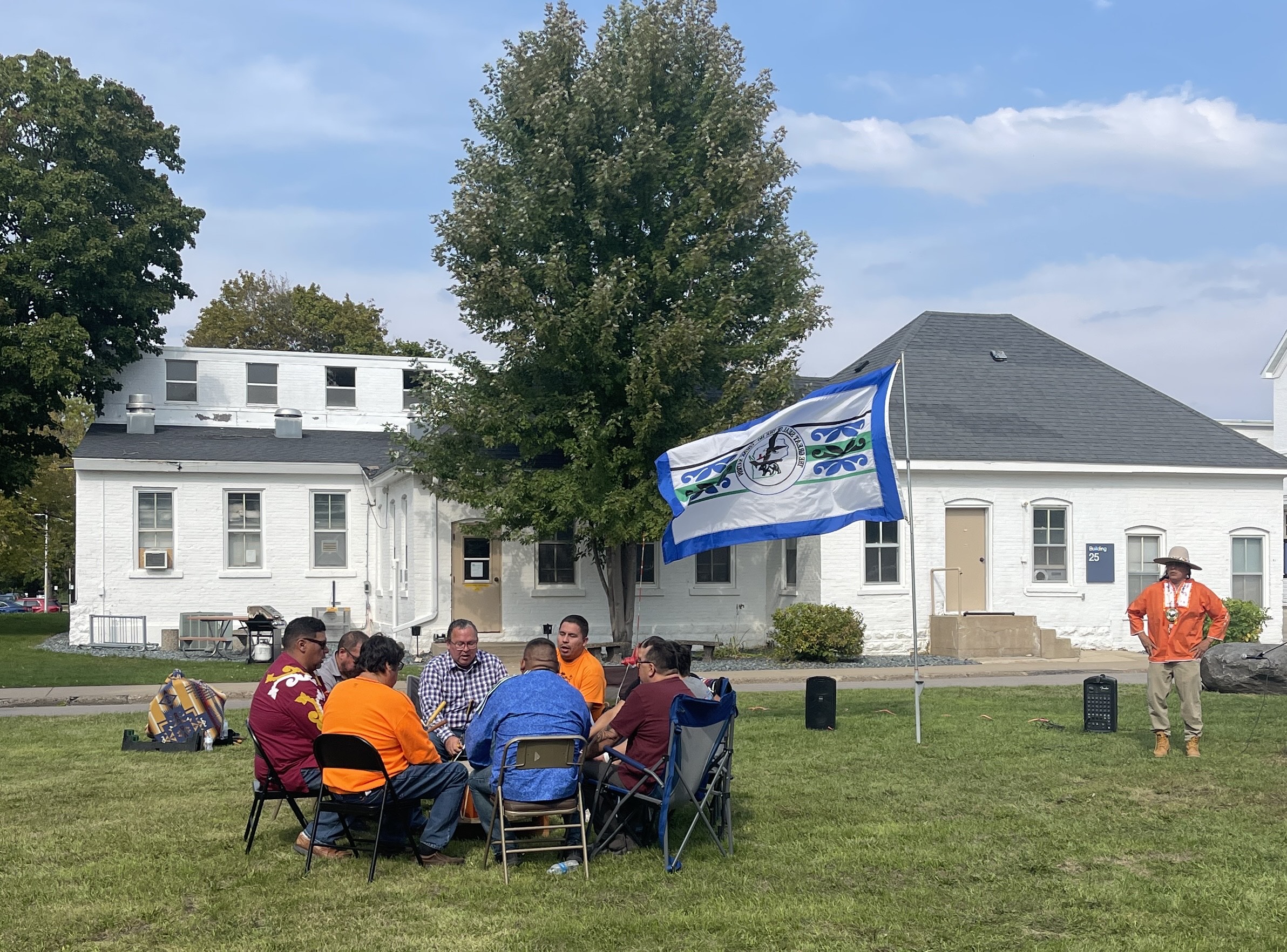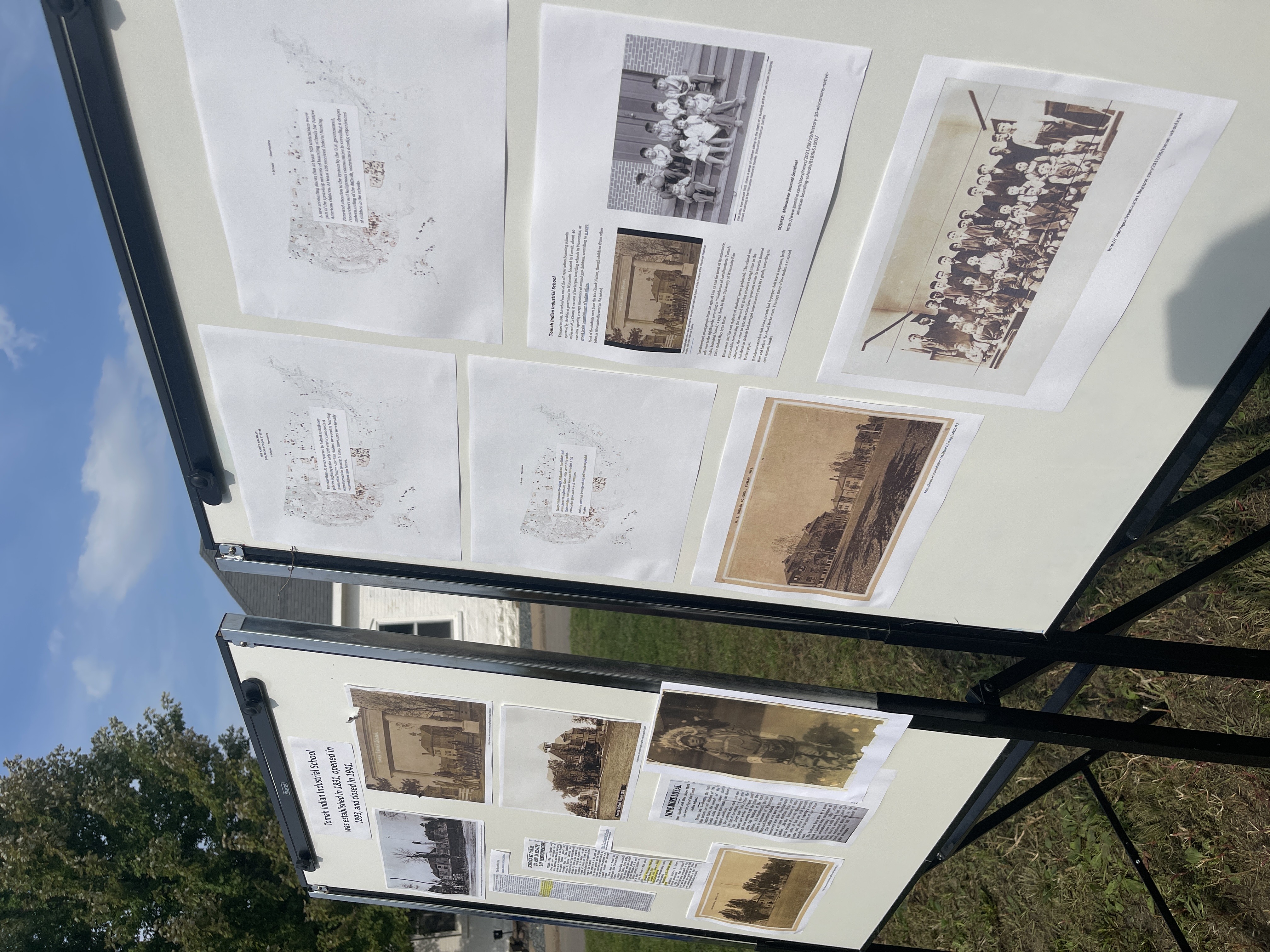
- Details
- By Kaili Berg
TOMAH, Wisc, — Several survivors who attended the Tomah Indian Industrial School in Tomah, Wisconsin and others gathered on Friday, September 29, 2023, to commemorate an annual observance called "Orange Shirt Day." The commemoration holds significant meaning to tribal citizens who attended boarding schools decades ago.
The Tomah Indian Industrial School was one of 11 Indian boarding schools that operated in the state of Wisconsin. The schools averaged about 350 Native American students The Tomah school operated from 1893 to 1941 and was one of the largest in Wisconsin. Most of the students were from the Ho-Chunk Nation with ages ranging from 6 to 21 years old.
Indian boarding schools were established throughout the United States and Canada. In Canada they were called Indian residential schools. The purpose of the boarding schools was to assimilate Indian students into mainstream society. In a military-style, they were made to wear uniforms, they were given haircuts, and forbidden to speak their Native languages.
Orange Shirt Day honors Indian boarding school survivors and Indigenous children who died at the schools. The event began in Canada in 2013, its name derived from a shiny orange shirt a member of the Stswecem’c Xgat’tem First Nation, Phyllis Webstad, received from her grandmother before moving to a residential school in British Columbia. The school took the shirt away as soon as she started and she never saw it again.

On Friday, in Tomah, an honor song was performed for children who attended Indian boarding schools. To commemorate the history the Waaksik Wosga Revitalization and the Hoocak Remembrance Day Planning Committee arranged for guest speakers.
“Even though I went to a residential boarding school, I will always know that I am Ho-Chunk,” Ho-Chunk elder and Indian boarding school survivor JoAnn Jones said at the event. “We all have memories of our childhood, we all have memories of the strength of our family members. Their ways help us with our Native identities.”

Historical records show that these boarding schools often forced Native American children to attend against their will. They often faced abuse and other harsh conditions that included physical, emotional, and sometimes sexual abuse.
“Now the healing is returning to our original spiritual place." Jones said. We are just as viable and as fulfilling as any other group. Our spiritual beliefs and our ways of life are what heal us and what helps keep us going.”
More Stories Like This
Native News Weekly (August 25, 2024): D.C. BriefsZuni Youth Enrichment Project Announces Family Engagement Night and Spring Break Youth Programming
Next on Native Bidaské: Leonard Peltier Reflects on His First Year After Prison
Deb Haaland Rolls Out Affordability Agenda in Albuquerque
Boys & Girls Clubs and BIE MOU Signing at National Days of Advocacy
Help us defend tribal sovereignty.
At Native News Online, our mission is rooted in telling the stories that strengthen sovereignty and uplift Indigenous voices — not just at year’s end, but every single day.
Because of your generosity last year, we were able to keep our reporters on the ground in tribal communities, at national gatherings and in the halls of Congress — covering the issues that matter most to Indian Country: sovereignty, culture, education, health and economic opportunity.
That support sustained us through a tough year in 2025. Now, as we look to the year ahead, we need your help right now to ensure warrior journalism remains strong — reporting that defends tribal sovereignty, amplifies Native truth, and holds power accountable.
 The stakes couldn't be higher. Your support keeps Native voices heard, Native stories told and Native sovereignty defended.
The stakes couldn't be higher. Your support keeps Native voices heard, Native stories told and Native sovereignty defended.
Stand with Warrior Journalism today.
Levi Rickert (Potawatomi), Editor & Publisher


